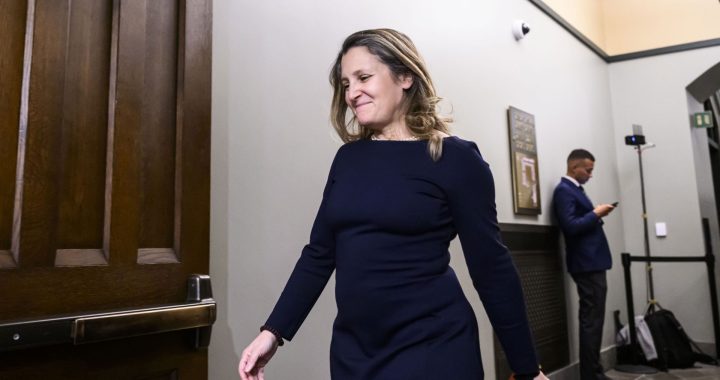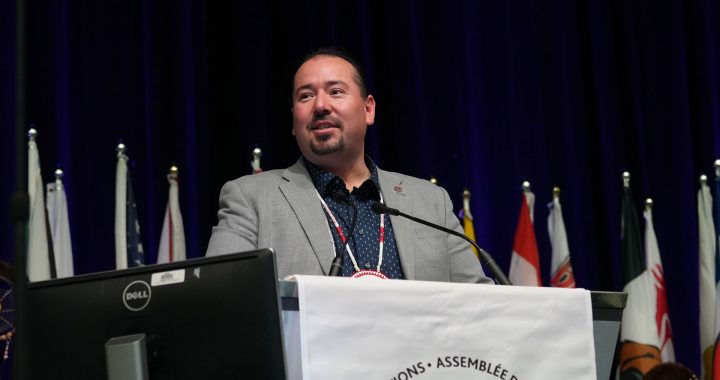It’s been years since Phyllis, an Inuk woman from Cambridge Bay, Nunavut, has had a home of her own.
Phyllis, who did not want to share her last name, has lived in Whitehorse for 20 years.
She became homeless three years ago after separating from her partner.
Since then, income support has been paying for her to stay in hotels.
“It’s a hard life not having a home, like home is where the heart is,” Phyllis tells APTN News.
Income support currently pays $1,500 for Phyllis to stay in a hotel in Whitehorse.
The room has no kitchen space or microwave, and Phyllis says she’s had to eat cold food out of a can just so she wouldn’t go hungry.
She says items from her room have been stolen, too.
“Quite a bit has gone missing,” she says.
Phyllis says what she wants most is to have a place of her own.
“My spirits would be lifted. I wouldn’t be depressed. It’s depressing being homeless. It’s depressing not knowing when your next meal is going to be,” she says.
But with the average apartment costing upwards of $1,400 a month according to the Yukon Anti-Poverty Coalition (YAPC), Phyllis says she can’t afford a rental unit on her own as someone on income support.
She says being on income support has also caused her to be discriminated against in the past.
“Everything that goes up for rent goes really quick and some of the people just don’t want to deal with people who are on income support,” she says.
“(Landlords) don’t look at you anymore. They’re just like ‘yeah, okay we’ll call you back,’ and they never do.”
‘People are losing hope’
Housing – and the lack thereof – has become a concerning issue in Whitehorse.
According to a 10-year progress report recently released by YPAC, “Housing has been the most common topic raised during the territorial and federal election campaigns held in 2021.”
The report states Whitehorse’s population has increased by 23.9 per cent in the last 10 years, but that housing availability has not kept up with demand.
As of April 2021, the rental vacancy rate in Whitehorse was 1.7 per cent, representing 38 units in a city of around 30,000 people.
“Inaccessible and unaffordable housing is a source of pressure for many Whitehorse residents despite having four levels of government and numerous non-governmental organizations (NGOs) to address the situation,” the report states.
“People are losing hope that adequate and affordable housing is possible.”
The cost of a single-detached home is also on the rise. In Whitehorse, the average price for a single-detached home in 2021 was $590,700, an increase of 16.1 per cent from 2020.
The report states constraints to building more housing stock include the high cost of transportation of materials, lack of available land, government policies and regulations that may impede creativity and funding sources that can be difficult to navigate.
It also notes “People are often pushed to pay upwards of $1,500 for a hotel room for a month and the Yukon Housing Corporation waitlist sits at 365 people.”
While the report notes some progress has been made over the last decade, such as increases in emergency shelter units, supported housing with facility-based staff and grants and loans for homeowners, “it is clear not enough progress to prevent deepening inequalities.”
Housing out of reach for many
Kate Mechan is the executive director for Safe At Home (SAH), an organization that provides supports for low-income and vulnerable Yukoners in need of housing.
She says homelessness is a growing issue in Whitehorse due to the barriers surrounding the city’s housing market – especially unaffordability.
“There’s not a single person who doesn’t call us who doesn’t have an unaffordability issue,” she says.
Mechan notes even high-earning Yukon government workers are coming to SAH as they can’t afford a place to stay.
“I think we’re going to see a real change in the face of homelessness due to our affordability, a really affordability issue here,” she says.
In August SAH released the findings of a point in time count, a federally mandated survey of people experiencing homelessness every few years.
It found that on April 13 and 14t of this year at least 151 people in Whitehorse were experiencing homelessness, 52 per cent of respondents were homeless for the entire past 12 months and 85 per cent of respondents were Indigenous.
“That’s a pretty overwhelming number and it’s actually up from 2018, so we’re not moving the needle on First Nations experiences of homelessness here,” Mechan says.
The survey also found unaffordability and discrimination were the two biggest barriers preventing the homeless from getting housing.
Investments made this year
Mechan says despite the mounting problem it could actually be fairly simple to solve homelessness in Whitehorse.
“151 people isn’t actually that many people if you look at numbers in other communities across the country,” Mechan says.
“This is very solvable here if we’re more coordinated, if people have better access to income support and if we have affordable housing.”
Meanwhile, millions are being pumped into Whitehorse’s housing stock.
A $6.07 million investment from Canada’s Rapid Housing Initiative (RHI) is being put towards a project developed for Champagne and Aishihik First Nations (CAFN) individuals and families in need of housing in Whitehorse. CAFN is investing $1.4 million into the project.
The fund will also provide Ta’an Kwäch’än Council (TKC) with $1.33 million to invest in 11 new homes across Whitehorse. TKC is investing $1.7 million into the project. The homes will include barrier free aspects to respond to both current and future requirements of citizens.
RHI funding will also go to projects outside of Whitehorse in the communities.
The federal government announced it was investing in several other housing projects in Whitehorse this year, including three new rental buildings totaling 87 new homes totalling $22.2 million.
Funded by the Canada Mortgage and Housing Corporation (CMHC), 18 homes will have below market rental rates for at least 25 years and five bachelor units will be reserved for tenants between 18 and 25 years old.
Mechan says she’s happy with the recent investments.
“I know the front end seems costly, but it’s going to get people and communities back on their feet to be able to rebuild, to be able to get to that place of healing,” she says.
“We can’t get there if we don’t have a roof over our heads.”
In August Whitehorse city council voted in support of SAH’s application under RHI’s 2.0 Cities Stream to convert a local hotel into 55 units of permanent supportive housing.
The project will have a separate section for youth aged 18 to 24, 75 per cent of suites will be for people who are Indigenous, and minimum of 50 per cent of all units will be for women.
Phyllis says she hopes to live there one day.
“It’s going to be opening up for people like me. I’m looking forward to that, hopefully, I’ll get in there.”










